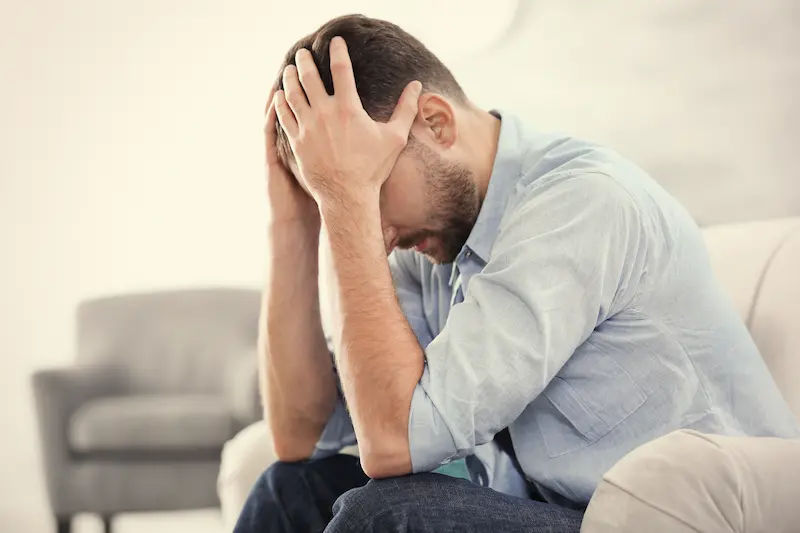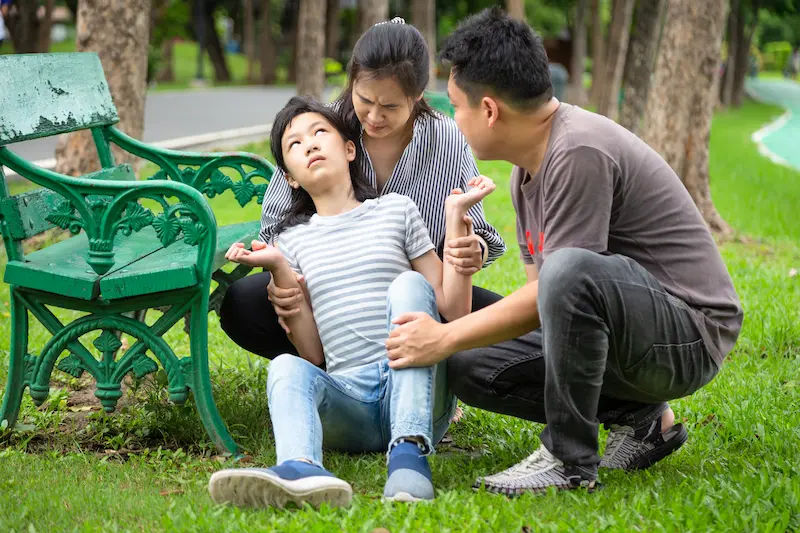Types of Depression Symptoms, Causes, and Treatments
Learn about common depression types, symptoms, causes, and treatments. Clear, trustworthy mental health guidance with expert-backed resources.

Written by Dr. Mohammed Kamran
Reviewed by Dr. D Bhanu Prakash MBBS, AFIH, Advanced certificate in critical care medicine, Fellowship in critical care medicine
Last updated on 13th Jan, 2026

Introduction: Why Understanding Depression Types Matters
Depression is one of the most common and treatable mental health conditions worldwide. Understanding the different types of depression helps people recognise symptoms earlier, appreciate the experiences of loved ones, and make informed choices about care. Knowing what distinguishes various forms of depression also helps reduce stigma, as it highlights the fact that depressive disorders can stem from many causes and appear in different ways. This guide explains widely recognised depression types, their symptoms, contributing factors, and treatment options that can be discussed with a healthcare professional.Consult a Top General Practitioner for Personalised Advice
What Is Depression?
Depression, also known as depressive disorder, is more than a temporary feeling of sadness or a period of discouragement. It involves persistent changes in mood, motivation, sleep, appetite, thinking, and energy that impair daily functioning. Depression can affect anyone regardless of age, background, or lifestyle. Most people improve with appropriate support, and early intervention typically leads to better outcomes. Treatment can include therapy, medication, or a combination, along with lifestyle adjustments and social support.
Understanding Common Depression Types
The common depression types include:
Major Depressive Disorder
It is characterised by:
- Episodes last at least two weeks, with symptoms including low mood or loss of interest
- Changes in sleep or appetite
- Low energy
- Poor concentration
- Feelings of worthlessness or guilt
- Sometimes thoughts of death or suicide
Persistent Depressive Disorder
It is characterised by:
- A long-lasting form of depression that continues for two years or more
- Often milder day to day than major depression
- Still significantly affects mood, productivity, and well-being
Perinatal and Postpartum Depression
It is characterised by:
- Occurs during pregnancy or after childbirth
- More severe than the short-lived baby blues
- Can affect bonding, emotional well-being, and family functioning
- Requires prompt support from trained clinicians
Seasonal Affective Disorder
It is characterised by:
- Follows a seasonal pattern, usually starting in autumn or winter
- Often improves in spring or summer
- Light exposure and structured treatment are typically beneficial
Premenstrual Dysphoric Disorder
It is characterised by:
- Severe emotional, behavioural, and physical symptoms in the week or two before menstruation
- Symptoms usually improve shortly after menstruation begins
Depression With Psychotic Features
It is characterised by:
- Major depression accompanied by hallucinations or delusions
- Requires specialised treatment, often involving medication and sometimes hospital support
Bipolar Depression
It is characterised by:
- Depressive episodes occurring within bipolar disorder
- Includes episodes of mania or hypomania
- Treatment differs from other depression types and relies on mood stabilisation
Adjustment Disorder With Depressed Mood
It is characterised by:
- Triggered by a stressful life event
- Causes significant distress without meeting full criteria for major depression
Substance or Medication-Induced Depressive Disorder
It is characterised by:
- Caused by certain medications, alcohol, or other substances
- Symptoms improve once the substance is reduced or removed with appropriate guidance
Depressive Disorder Due to a Medical Condition
It is characterised by:
- Triggered by conditions such as thyroid disease, stroke, or chronic illness
- Requires treatment of both the underlying condition and mood symptoms
Depression With Atypical Features
It is characterised by:
- Involves mood reactivity
- Increased appetite or sleep
- A feeling of heaviness in the limbs
Treatment-Resistant Depression
It is characterised by:
- Depression that has not improved after at least two appropriate treatments
- Advanced therapies can still be effective
Symptoms and Warning Signs
Depression varies widely in how it presents, but common symptoms include:
- Persistent sadness, emptiness, or irritability
- Loss of interest in activities previously enjoyed
- Changes in appetite or weight
- Difficulty sleeping or excessive sleeping
- Low energy or ongoing fatigue
- Feeling slowed down or unusually restless
- Trouble concentrating or making decisions
- Feelings of worthlessness, guilt, or hopelessness
- Physical symptoms such as headaches or stomach issues without a clear cause
Thoughts of death or suicide
Children and teenagers may show irritability or academic decline. Older adults may show social withdrawal, memory issues, or physical complaints more prominently than sadness.
What Causes Depression?
Depression rarely has a single cause. Instead, it often results from a combination of influences such as:
- Differences in biology and brain chemistry
- Genetics and family history
- Hormonal changes
- Stressful or traumatic events
- Chronic medical conditions
- Certain medications or substance use
- Social factors, including isolation, financial difficulties, or discrimination
Protective factors that support mental health include strong relationships, regular physical activity, reliable sleep routines, stress management, and access to appropriate health care.
How is depression diagnosed?
Diagnosis involves a thorough assessment by a healthcare professional and may include:
- Discussion of symptoms, length of duration, and daily effects
- Review of medical history and family background
- Standardised screening tools
- Tests to rule out medical issues such as thyroid problems or deficiencies
If bipolar disorder is suspected, clinicians will explore past episodes of high energy or mood changes because treatment varies significantly.
Evidence-Based Treatments for Different Depression Types
Different treatment options include:
Psychotherapy
It includes:
- Cognitive behavioural therapy helps replace unhelpful thinking patterns and build healthier behaviours
- Interpersonal therapy focuses on relationship dynamics, transitions, and communication
- Behavioural activation encourages structured, meaningful activity
- Problem-solving therapy provides tools to address practical challenges
Medications
It includes:
- First-line antidepressants often include SSRIs and SNRIs
- Other options include bupropion and mirtazapine
- Older medications such as tricyclics and MAOIs are used selectively
- It may take several weeks to feel the full benefits
- Many people benefit from combining medication with therapy
Brain Stimulation and Advanced Treatments
It includes:
- Electroconvulsive therapy is a highly effective option for severe or treatment-resistant depression
- Repetitive transcranial magnetic stimulation is a noninvasive outpatient treatment
- Esketamine or ketamine based treatment may be used for treatment-resistant depression under medical supervision
Lifestyle and Self-Care Supports
Lifestyle support includes:
- Regular physical activity
- Consistent sleep routines
- Balanced, regular meals
- Limiting alcohol and avoiding non-prescribed substances
- Mindfulness, relaxation, or breathing exercises
- Supportive social engagement
- Structured daily routines and small goals
- Use of light therapy for seasonal patterns when recommended
Special Considerations by Depression Type
Special considerations include:
Perinatal and Postpartum Depression
- Therapy and selected medications can be safe in pregnancy and breastfeeding
- Coordination with obstetric and paediatric providers is recommended
Bipolar Depression
- Mood stabilisers or specific antipsychotics are the foundation of treatment
- Antidepressants may be used cautiously and typically alongside a mood stabiliser
Premenstrual Dysphoric Disorder
- Lifestyle changes can help
- SSRIs may be used full-time or only during certain cycle phases
Psychotic Depression
- Requires urgent care
- Typically involves a combination of antidepressants and antipsychotics
- ECT may be necessary
Treatment-Resistant Depression
- Re-evaluation of previous treatments
- Combination therapy
- Augmentation strategies
- rTMS, ECT, or esketamine
When to Seek Help for Your Mental Health
Seek professional support if:
- Symptoms persist for two weeks or longer
- Mood changes affect relationships, work, school, or daily tasks
- Sleep or appetite is significantly altered
- Thoughts of self-harm or suicide occur
Crisis Support
If immediate danger is present, contact local emergency services. Those in crisis should reach out to appropriate emergency care within their own country. Support from trained professionals can provide safety and guidance during urgent situations.
Prevention and Staying Well
Maintaining well-being includes:
- Staying socially connected
- Regular movement or gentle exercise
- Consistent sleep and meal routines
- Limiting alcohol and avoiding illicit substances
- Practising stress reduction techniques
- Following treatment plans and attending follow-ups
- Recognising early warning signs and having a relapse plan
Conclusion
Understanding depression in its many forms helps people recognise symptoms earlier and seek timely support. Each type of depression has unique features, yet all deserve compassion and evidence-based care. Treatment can be highly effective, particularly when tailored to individual needs. Early intervention improves outcomes and reduces the impact on daily life. With appropriate help, support, and coping strategies, many people manage symptoms successfully and regain a sense of stability and hope.Consult a Top General Practitioner for Personalised Advice
Consult a Top General Practitioner for Personalised Advice

Dr. Mainak Baksi
General Practitioner
13 Years • MBBS , MD (MPH)
Howrah
Mainak Baksi Clinic, Howrah
(50+ Patients)

Dr Suseela
General Physician
5 Years • MBBS
Bengaluru
Apollo Medical Center, Marathahalli, Bengaluru

Dr. Rajib Ghose
General Physician/ Internal Medicine Specialist
25 Years • MBBS
East Midnapore
VIVEKANANDA SEBA SADAN, East Midnapore

Dr. Aakash Shah
General Practitioner
6 Years • MBBS, DNB Emergency Medicine
Delhi
AIIMS, Delhi
Dr. Nirav Nitin Shah
General Practitioner
14 Years • Mbbs
Mumbai
Shreenath Clinic, Mumbai
Consult a Top General Practitioner for Personalised Advice

Dr. Mainak Baksi
General Practitioner
13 Years • MBBS , MD (MPH)
Howrah
Mainak Baksi Clinic, Howrah
(50+ Patients)

Dr Suseela
General Physician
5 Years • MBBS
Bengaluru
Apollo Medical Center, Marathahalli, Bengaluru

Dr. Rajib Ghose
General Physician/ Internal Medicine Specialist
25 Years • MBBS
East Midnapore
VIVEKANANDA SEBA SADAN, East Midnapore

Dr. Aakash Shah
General Practitioner
6 Years • MBBS, DNB Emergency Medicine
Delhi
AIIMS, Delhi
Dr. Nirav Nitin Shah
General Practitioner
14 Years • Mbbs
Mumbai
Shreenath Clinic, Mumbai
More articles from Depression
Frequently Asked Questions
Q.What Is the Difference Between Sadness and Depression?
Sadness is temporary, while depression involves persistent symptoms that disrupt daily life. Professional guidance is recommended when symptoms last most days for two weeks or more.
Q.Can Depression Improve Without Treatment?
Some mild cases improve with strong support and healthy habits, but many people need therapy or medication to recover fully.
Q.How Long Do Antidepressants Take to Work?
Many individuals notice improvement within a few weeks, though full effects may take longer. Side effects or lack of progress should be discussed with a prescriber.
Q.Which Depression Types Need Medication?
Medication is often used for moderate to severe depression, bipolar depression, or psychotic depression. Therapy alone may be considered for mild cases.
Q.How Can I Support a Loved One With Depression?
Offer non-judgmental listening, provide practical help, encourage professional support, and seek urgent help if self-harm or suicidal thoughts are expressed.




